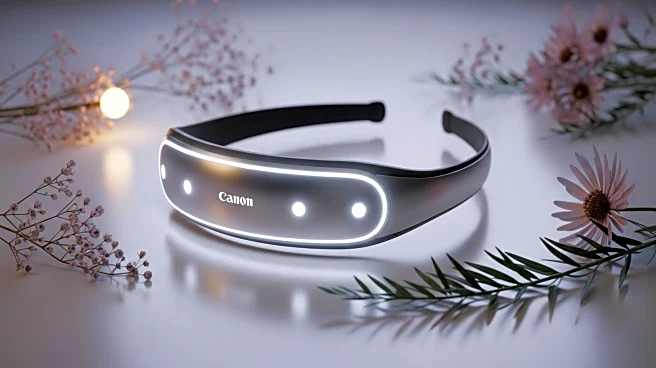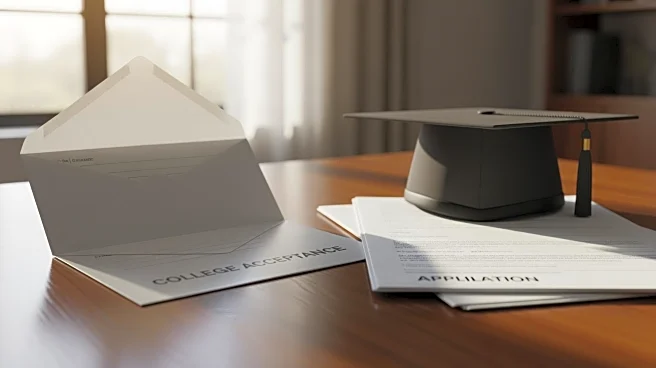What's Happening?
Samphire Neuroscience, a female-founded neurotech company, has launched a new wearable device called Lutea in the United States. Lutea is designed to help women manage emotional fluctuations and discomfort associated with their menstrual cycle. The device uses transcranial direct current stimulation to target the prefrontal cortex, a brain region linked to emotional control and pain perception. Users wear the headband for about 20 minutes daily, particularly in the days leading up to their period. The accompanying app customizes the usage schedule based on individual cycles and symptoms. Unlike other wearables that focus on symptom tracking or nerve stimulation, Lutea aims to retrain the brain's response to hormonal changes, offering a drug-free alternative validated by neuroscience.
Why It's Important?
The introduction of Lutea represents a significant advancement in women's health technology, offering a non-invasive solution to manage menstrual symptoms. This device could potentially reduce reliance on medication and hormonal treatments, providing a stigma-free option for women seeking to balance mood and energy during their cycle. By integrating neuroscience into everyday health management, Lutea may empower women to take control of their well-being without the side effects associated with traditional treatments. The launch in the U.S. follows successful sales in the UK, indicating a growing demand for innovative health solutions tailored to women's needs.
What's Next?
Samphire Neuroscience is currently accepting preorders for Lutea, priced at $589 with a 30% discount available, reducing the cost to $412. The app requires a $69.99 annual subscription, and preorders include a 90-day return policy. As the device becomes available, it may prompt further research and development in non-invasive brain stimulation technologies for other health applications. The success of Lutea could encourage more companies to explore similar approaches, potentially leading to broader acceptance and integration of neurotech in personal health management.
Beyond the Headlines
The launch of Lutea highlights the growing intersection of neuroscience and consumer health technology, particularly in addressing women's health issues. This development may spark discussions on the ethical implications of brain stimulation devices and their long-term effects. As more women adopt such technologies, there could be shifts in cultural perceptions of menstrual health, reducing stigma and promoting open conversations about women's health challenges.








